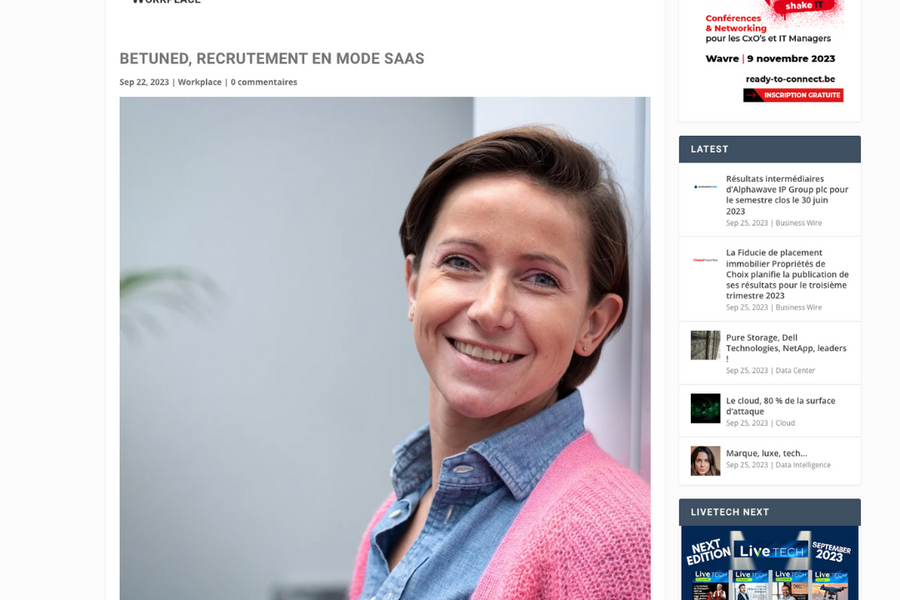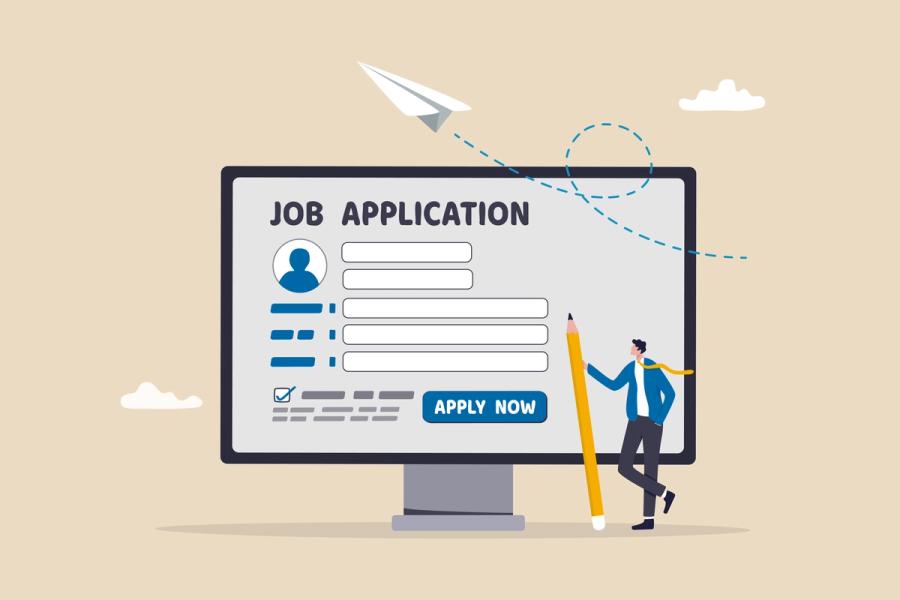
10 hacks de recrutement pour 2024 (partie 2)
Chez Betuned, nous plaçons l'efficacité et la simplicité au cœur de nos valeurs. Dans cette série d'articles, nous partageons avec vous 10 hacks de recrutement concrets et faciles à mettre en œuvre pour accélérer votre processus de recrutement en 2024.

10 hacks pour accélérer vos recrutements en 2024 (partie 1)
Chez Betuned, nous plaçons l'efficacité et la simplicité au cœur de nos valeurs. Dans cette série d'articles, nous partageons avec vous 10 hacks de recrutement concrets et faciles à mettre en œuvre pour accélérer votre processus de recrutement en 2024. Ces bonnes pratiques vous aideront à attirer, évaluer et sélectionner les meilleurs talents de manière plus efficace.

Tout savoir sur l'analytique RH
Dans de nombreux secteurs tels que la finance ou le e-commerce, les données sont devenues une ressource clé pour les entreprises. Collectées, stockées et analysées, elles servent à prédire des tendances et à prendre des décisions stratégiques éclairées.

Comment vos collègues de bureau utilisent-ils l’IA générative sans vous le dire ?
Tiens, c’est étrange, Jean-Pierre ne fait plus de fautes d’orthographe dans ses e-mails… Et Cristina, ne trouves-tu pas que ses présentations PowerPoint sont vraiment bien illustrées ?

Le travail en 2040 : tendances organisationnelles et enjeux RH dans un monde en mutation
Comment imaginer, comment penser le futur du travail ?

Le stress est-il vraiment l’ennemi à combattre ?
J'ai une amie qui est constamment stressée, que ce soit à cause de son travail, de sa vie de famille ou de la vie en général. Dans sa quête pour se sentir mieux, elle a transformé son quotidien en une lutte contre le stress et l'anxiété. Méditation, salle de sport, régime Keto, lectures de développement personnel, vidéos ASMR, podcasts relaxants... elle a tout essayé.

Pénurie de talents : 3 erreurs à éviter en 2024
Pénurie de talents : évitez ces 3 erreurs !

Checklist RH : anticiper ses recrutements en 3 questions fondamentales (et bonnes pratiques)
Dans un contexte économique caractérisé par l’instabilité et l’incertitude, anticiper ou essayer d’anticiper l’avenir est une démarche essentielle pour les entreprises.

5 tendances tech innovantes qui vont disrupter les RH
Les métiers des Ressources Humaines se trouvent à l'aube d'une transformation majeure qui va bien au-delà de l'automatisation de certaines tâches et processus déjà permise par certains outils et logiciels. La technologie appliquée au RH va bien plus loin et s'aventure aujourd’hui dans des domaines jadis exclusivement réservés à l’esprit humain pour le seconder ou pour lui apporter d’autres angles d’analyse.

Entretien annuel, 5 erreurs que vous ne devez plus commettre
Fin d’année rime souvent avec entretien annuel d’évaluation. Ce rituel incontournable de la vie professionnelle est un moment aussi important que stressant pour les deux parties.

Fin d’année : comment gérer une période de rush au travail ?
Si votre to-do list de décembre est plus longue que celle que vous avez envoyée au père Noël, alors cet article a été écrit pour vous !

Employer branding : les 20 questions que tous nos clients se posent (partie 4)
"Mon supérieur m'a confié la mission de développer la marque employeur de notre entreprise, c'est l’objet de mon appel, j’ai besoin de conseils."

Employer branding : les 20 questions que tous nos clients se posent (partie 3)
"Mon supérieur m'a confié la mission de développer la marque employeur de notre entreprise, c'est l’objet de mon appel, j’ai besoin de conseils."

Employer branding : les 20 questions que tous nos clients se posent (partie 2)
"Mon supérieur m'a chargé de travailler sur la marque employeur de notre entreprise, c'est pourquoi je vous contacte."

Employer Branding : les 20 questions que tous nos clients se posent (partie 1)
"Mon supérieur m'a chargé de travailler sur la marque employeur de notre entreprise, c'est pourquoi je vous contacte."

On parle de Betuned dans Solutions Magazine !
Betuned, recrutement en mode SaaS

Recrutement : quels avantages sociaux proposer pour attirer les meilleurs talents ?
Le rapport de force sur le marché du travail est aujourd’hui nettement en faveur des salariés, et attirer des candidats potentiels, notamment ceux qui sont passifs, est une tâche de plus en plus difficiles

Site carrière, tout savoir avant de se lancer
Créer un site carrière pour votre entreprise, c’est ouvrir la porte à tout un univers de possibilités pour attirer et convertir les candidats les plus talentueux.

Comment préparer un entretien d’embauche en 40 minutes chrono ?
La bonne nouvelle que vous attendiez est arrivée !! Le recruteur vous a enfin rappelé pour vous annoncer que votre candidature a été retenue. Vous êtes prié de vous rendre à un entretien…. cet après-midi même !

Six bonnes raisons d’externaliser vos recrutements
Trouver la perle rare, le candidat idéal pour accompagner la croissance de votre entreprise n’est pas chose aisée.

Que faire quand votre manager minimise vos émotions ?
“Non, mais Jean-Pierre attend, ne le prends pas comme ça ! … Emilie, détends-toi, ne te mets pas dans cet état-là ! … Ça va Charlotte, allez, n’en parlons plus tu veux… Bon allez Patrick, on passe à autre chose maintenant que tu as fini ta crise ?!”

Premier entretien téléphonique, les 5 questions que l’on va vous poser
Votre vœu est exaucé ! Le téléphone sonne et comme un génie qui sort de sa lampe,un responsable RH vous informe votre candidature a été retenue. Félicitations !

Authenticité : pourquoi il ne faut pas laisser le service marketing construire votre marque employeur ?
Sur un marché du travail en tension, peu de responsables RH remettent en cause aujourd’hui la capacité de la marque employeur à attirer et fidéliser les talents. À l'heure du digital, l'image de l’entreprise auprès de ses salariés et des candidats potentiels influence énormément le succès des recrutements.

Au secours je suis hypersensible au travail, que faire ?
Vous vous sentez parfois submergées par vos émotions au travail ? Vos sens sont surstimulés et vous avez l’impression d’avancer à toute vitesse sur des montagnes russes émotionnelles ? Les bruits, certaines lumières vives vous dérangent, certaines interactions sociales vous indisposent également quand elles sont improvisées ?